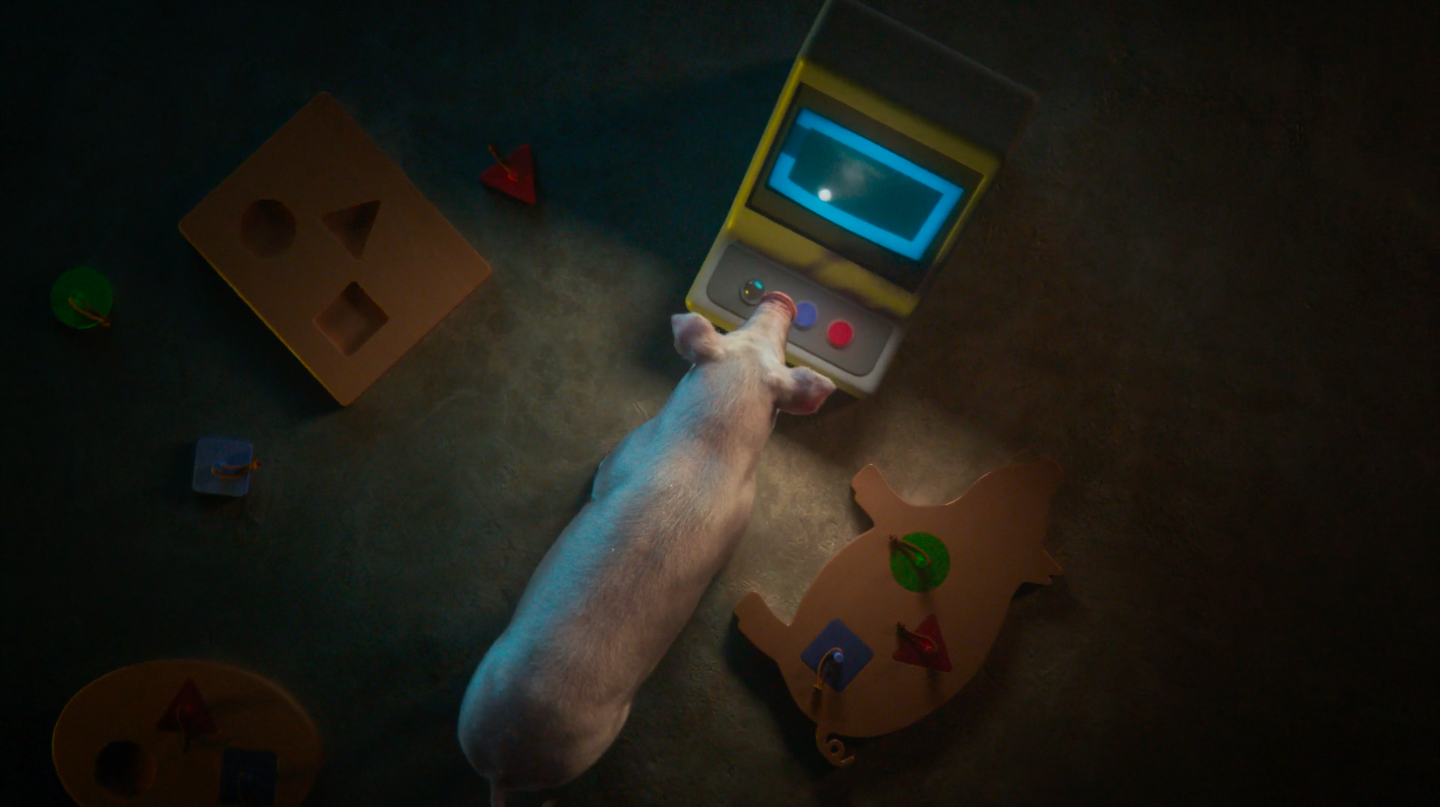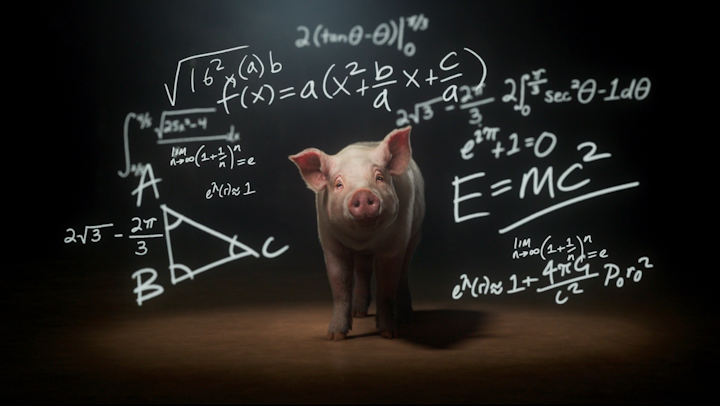For animals to be officially recognised as sentient in the eyes of the law, we often have to rely on scientific data that compares their intelligence against human standards. In our Thoughtful Pig film, that we created for World Animal Protection, we reference a specific experiment where our pig plays a video game in order to receive a reward. The ability of pigs to understand and play such games not only shows how intelligent they are, but also how adaptable they can be to unfamiliar, and unnatural, situations.

In our initial research, we came across numerous documented examples of pig intelligence, both under strict scientific conditions and not. There’s Nelly, whose ability we’ve also referenced in the film, who’s able to think on her trotters whilst solving various shape-sorter puzzles. Another great example, that we didn’t get to reference, are the pigs who are outsmarting computerised feeding systems. On some farms, pigs are fitted with a microchipped collar that instructs an automated feeding system to give them one individualised portion of feed per day. However, some clever pigs take advantage of their more intelligently-challenged barn-mates who don’t like wearing the collars and remove them before eating. These are then picked up by other pigs and carried back through the feeder for a second helping of food. Pretty smart, wouldn’t you say?
Pigs can’t pass the classic Mirror Test, that judges animal sentience by proving self-awareness through the ability to recognise themselves in a mirror; although they are able to use mirrors to find hidden food. The Mirror Test, developed in 1970 by an American psychologist called Gordon Gallup Jr, works by placing an ink mark on an animal’s head. They are then deemed self-aware, and therefore sentient, if they try to remove the mark whilst looking in a mirror.
However, this test is inherently impossible for those animals with hooves, which could be why animals such as chimpanzees and elephants were deemed the most sentient for many years. We now know that pig intelligence rates as highly, if not higher, than that of chimpanzees. Let’s face it, would pigs really be bothered by an ink mark after foraging in the dirt all day? And it must be much harder to play video games without an opposable thumb!
We were constantly amazed by the videos of pigs who have been raised in domestic households and how they behave just like dogs. It’s very clear from these videos that pigs are equally as smart and sentient as the most popular pet in the world.
As you’ll see in our film’s thought sequence, farmed pigs don’t ask much from life. Just the ability to interact with family and friends, the freedom to roam and forage, a comfortable straw bed to sleep in, with the odd mud-bath thrown in for good measure. Is that really too much to ask, considering their ultimate sacrifice?
Intensive farms are not only extremely inhumane, they are very bad for our own health and that of our planet. These dark, dank warehouses are a breeding ground for many pathogens, including e-coli and salmonella, which are easily passed from animal to animal, with risks to ourselves upon their consumption. These immense farms, found all over the globe, also release vast amounts of concentrated methane into our atmosphere, therefore speeding up climate change.
We can help end factory farming and improve the health of our planet by buying meat from responsible sources that prioritise higher animal welfare. These can be found in supermarkets with packaging labelled as RSPCA Assured, Red Tractor Certified, Outdoor Reared, Grass Fed, Organic or Free Range.
Find out how you can help change the lives of intensively farmed animals at World Animal Protection’s website HERE.
Read more about how intelligent pigs are in a Financial Times article HERE and a Noéma magazine article HERE.
Find out how pigs can use mirrors to find food in a Wired article HERE.

